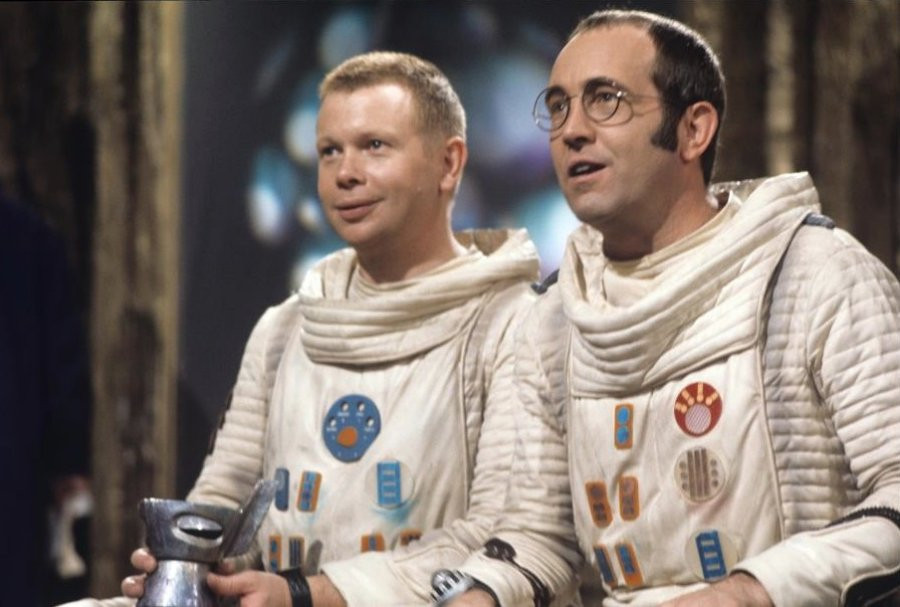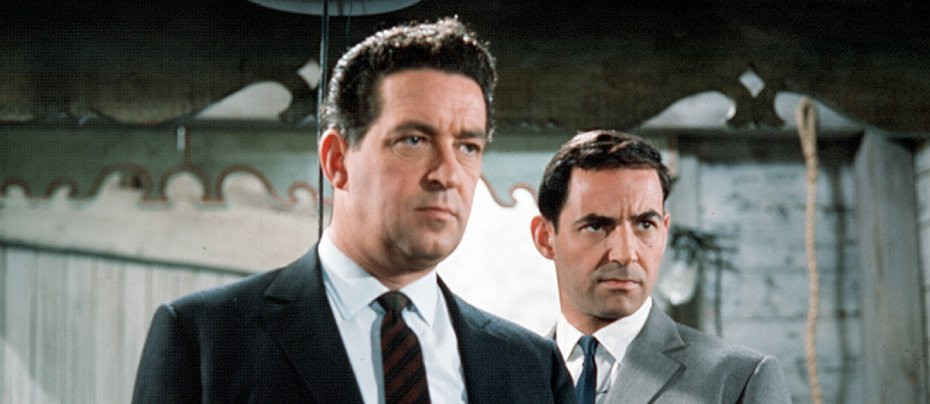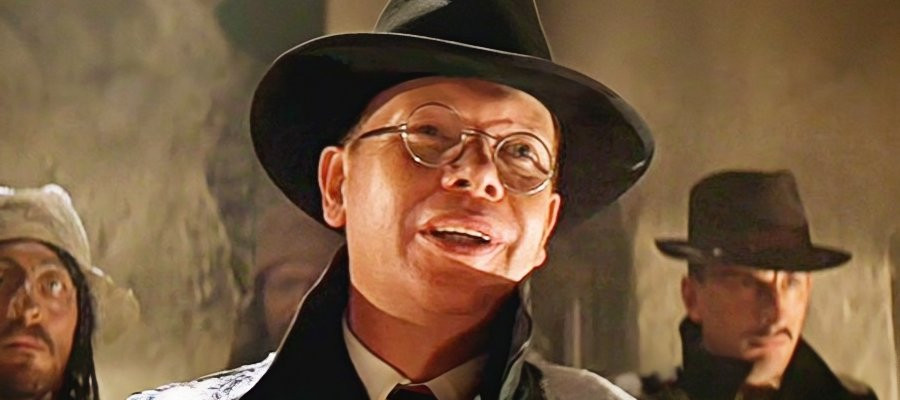
Ronald Lacey
A Master of the Macabre and the Memorable
The world of British film and television has been graced by many singular talents, but few possessed the peculiar brilliance of Ronald Lacey. Born on 28 September 1935 in Harrow, Middlesex, Lacey was an actor of extraordinary range and individuality, a man whose very face seemed made for character work — and whose presence could unsettle, amuse, or quietly haunt long after the credits had rolled.
Educated at Harrow Weald Grammar School, Lacey served a stint in the British Armed Forces before training at the London Academy of Music and Dramatic Art. His career began in earnest with a television play in 1959, The Secret Agent, and a striking stage debut in Chips with Everything at the Royal Court Theatre in 1962. But it was not long before television and film discovered that behind Lacey’s curious, almost cartoonish features — the beady eyes, upturned nose, overbite and receding chin — lay a performer of uncanny dexterity and depth.
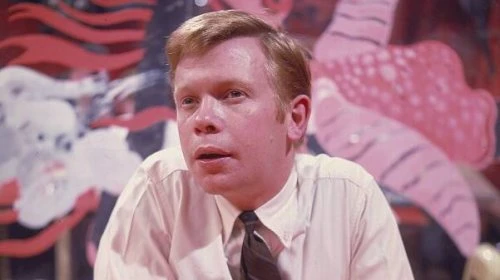
He was a familiar face on British screens through the '60s and '70s, appearing in The Avengers, The pilot episode of Randall and Hopkirk (Deceased), and as Harris, the unctuous prison inmate in three episodes of Porridge, a role that demonstrated his gift for playing the repellent underdog. His work with Patrick Stewart and Ian Richardson in Kenneth Clark's Civilisation series — playing the gravedigger in Hamlet — showed how at home he was with classical material. Yet it was his sheer ability to inhabit the strange, the sinister, and the satirical that marked his true signature.
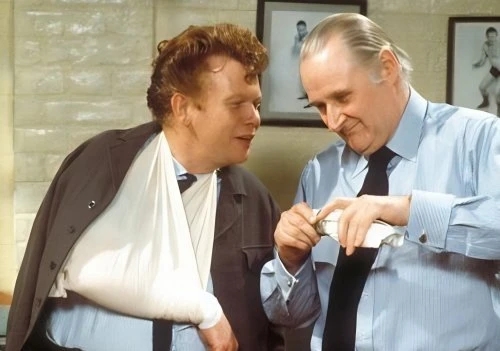
In 1981, Lacey achieved international recognition when Steven Spielberg cast him as the sadistic Sturmbannführer Arnold Ernst Toht in Raiders of the Lost Ark. It was a performance that made full use of Lacey’s gift for embodying grotesques, and his now-iconic final scene in the film — quite literally face-melting — etched him into the memory of a generation. The oily menace of Toht, delivered with a toothy, chilling leer, encapsulated Lacey’s unique ability to turn his eccentricities into assets.
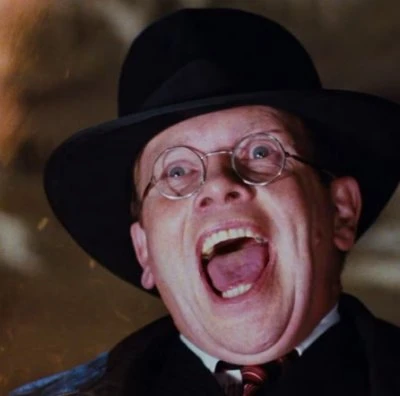
Hollywood noticed. Throughout the early 1980s, Lacey was cast in a string of villainous roles: Sahara with Brooke Shields, Flesh and Blood with Rutger Hauer and Jennifer Jason Leigh, Firefox with Clint Eastwood, and Red Sonja with Arnold Schwarzenegger and Brigitte Nielsen. Yet he never quite abandoned the British stage and television that had nurtured him. In 1986, he returned to the small screen in gloriously grotesque form as the corrupt Bishop of Bath and Wells in Blackadder II, threatening to “stick a poker up the nether regions” of Rowan Atkinson’s scheming lord. Delivered with deadpan glee, it remains one of his most beloved performances.
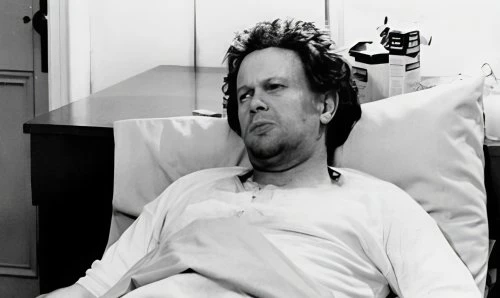
But Ronald Lacey was not merely a grotesque specialist. His turn as Dylan Thomas in a BBC2 production was hailed by critic Clive James as a “bravura performance”, showing the full weight of Lacey’s depth and intelligence as an actor. He could be comedic, tragic, absurd and disturbing — sometimes all in the space of a few moments. His comic monologues in The Green Tie on the Little Yellow Dog (1983) demonstrated his wit and versatility, and his drag performances in Trenchcoat and Invitation to the Wedding offered yet another window into his range — always eccentric, never predictable.
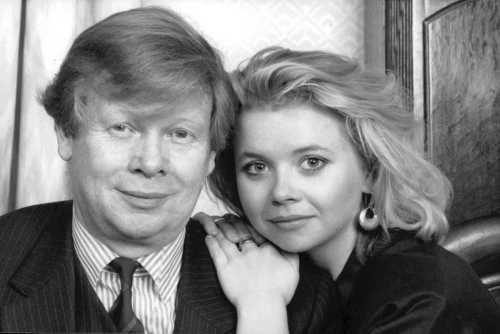
A devoted father of three, Lacey was twice married, first to actress Mela White, with whom he had two children, and then to Joanna Baker, with whom he had a son. His daughter Rebecca Lacey would go on to carve her own path in British television, a quiet testament to the legacy he left behind at home as well as on screen.
Ronald Lacey died far too young, succumbing to liver cancer on 15 May 1991 at just 55. But in those years, he carved out a career that defied categorisation — a master of the unsettling cameo, the tragicomic grotesque, and the offbeat villain.
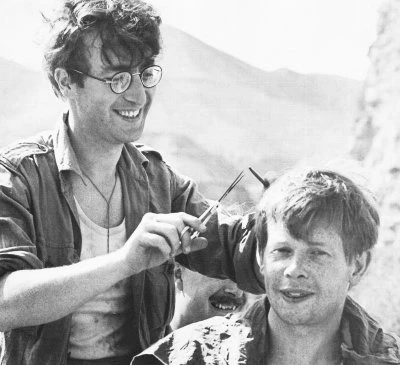
British television and film will always have room for the handsome hero and the rugged lead — but it is the Ronald Laceys of this world, with their unforgettable faces and unorthodox brilliance, who give the screen its texture, its edge, and, sometimes, its shivers.
He is missed. But in every sneering smile, every high-pitched scream, and every perfectly delivered line of twisted menace, Ronald Lacey lives on.
Published on July 21st, 2025. Written by Laurence Marcus for Television Heaven.


